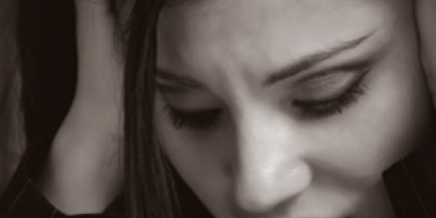Following a head injury, there are many things of which to be concerned. Top on the list is often a concussion. An injury to your brain that affects the way your brain works, a concussion can be scary business and should be treated seriously. So if a concussion is suspected, seek medical attention as soon as possible.
Whether a person is severely shaken or has a blow to the head while playing contact sports, suffers from a bad car accident, or takes a hard fall, how can you know if he or she has suffered a concussion? Here’s what to look for following a head injury and what you can do to reduce the risk for long-term injury.
Altered Consciousness
It’s often difficult to tell if someone has suffered a concussion because symptoms may not appear immediately but may take several days or weeks to present themselves. In fact, a concussion can result with an injury that seems relatively minor. There may be no outward sign of trauma or cuts, bruises, or a bump where the head was impacted, but a concussion may be lurking.
Since a concussion is a brain injury, it will temporarily alter a person’s feelings of consciousness, thoughts, and normal brain function. Dizziness, unusual tiredness, ringing in the ears, and confusion are common. Most concussions do not result in loss of consciousness.
What to Watch For
Perhaps your son plays football and sustains a blow to the head. Maybe your toddler fell off the top bunk. If you’re worried a concussion is possible, look for the following symptoms:
- nausea or vomiting
- seizures
- confusion
- difficulty walking, loss of balance, or decreased coordination
- weakness or numbness
- slurred speech
- trouble sleeping or being overly tired
- loss of short-term memory
- headache
- sensitivity to light
- unable to taste or smell
- unusual irritability or crankiness
- fuzzy vision or unevenly sized pupils
If you notice any of these symptoms following a head injury, seek medical attention. There’s no such thing as a “minor” brain injury, so all concussions should be evaluated by a professional. If you’re unsure if there’s a concussion, play it safe by calling a physician anyway.
Diagnosis and Treatment
To determine if someone has a concussion, the doctor will perform a neurological exam and brain imaging tests (usually a CT scan). It may take time, but most people experience a full recovery following a concussion. Unfortunately, severe cases may lead to long-term memory and problem-solving impairments. The more concussions a person experiences in life, the greater the risk of long term damage. (So football, rugby, and other contact sport players beware!)
With a concussion, the most important treatment is rest. Taking it easy and avoiding activities that require focused attention (playing video games, watching TV, or using the computer) will help your brain heal. Tylenol can be taken to relieve headaches.
The most dangerous type of concussion is one that happens soon after a previous concussion before the first one has had time to heal. In such a case, a concussion may cause permanent brain damage or even death. This is why rest is so important following a concussion. Recognize when you’ve suffered a concussion and avoid activities that put you at risk for subsequent blows to the head until you are sure a concussion is fully healed.
Prevention
While you can’t avoid all concussions, there are steps you can take to lessen the likelihood of head injuries. A good first step is to always wear a helmet while participating in any kind of contact or dangerous sport or when riding a bike.
Additionally, never dive in a pool that’s less than 9 feet deep, wear a seat belt whenever you’re in a moving vehicle, and never drive intoxicated. Inside your house, take steps to ensure your home is as accident proof as possible. Keep the floor clear of toys, secure area rugs, install safety gates and handrails on stairways, and pad sharp corners.
$12 Billion Brains
An estimated $12 billion of expense are affiliated with concussion and other mild traumatic brain injury each year.







